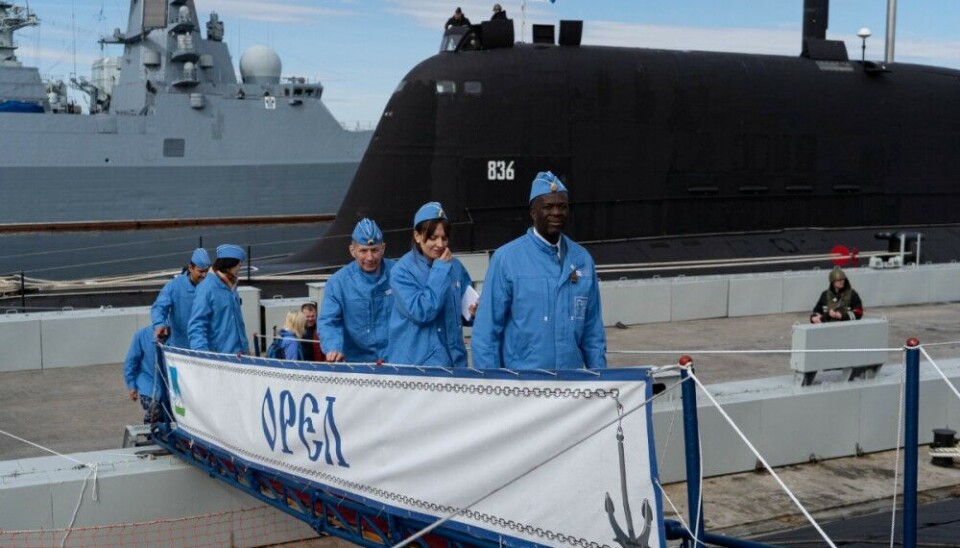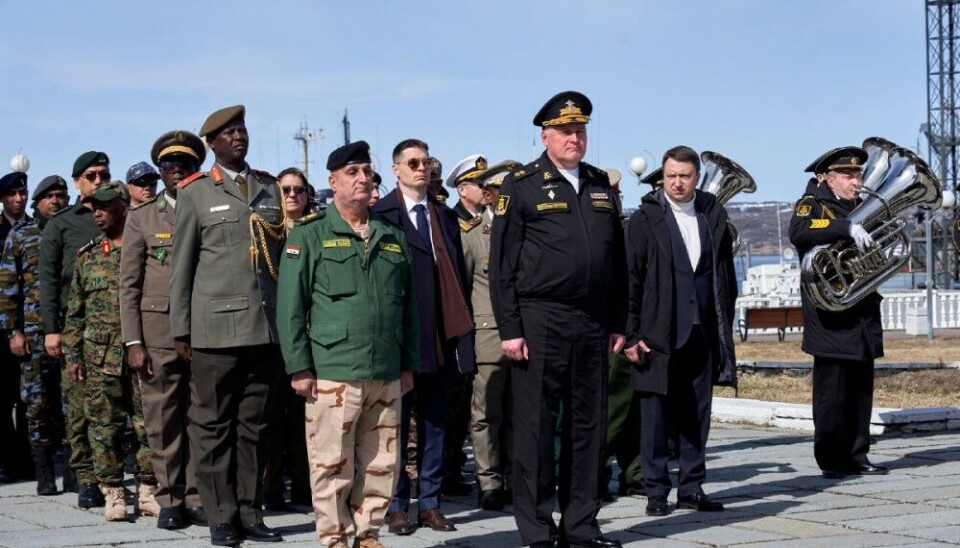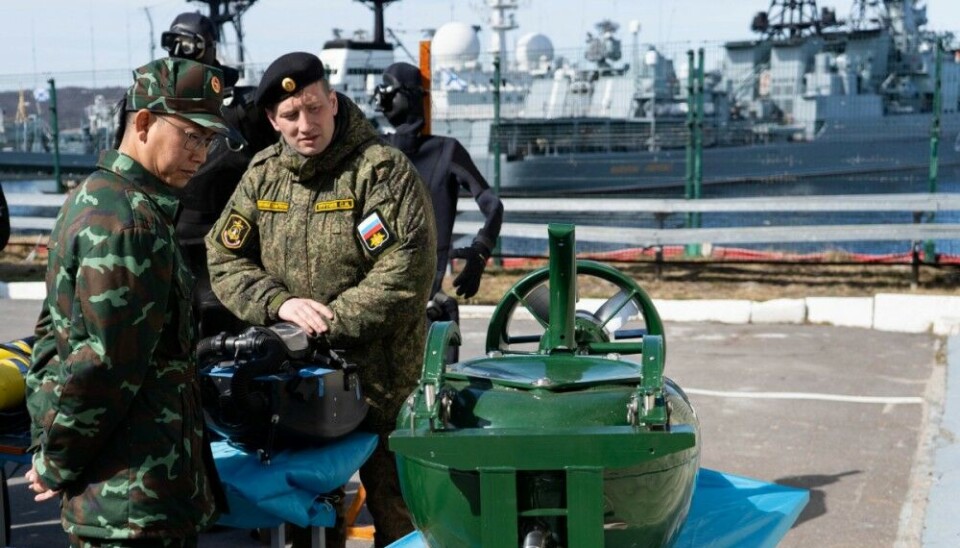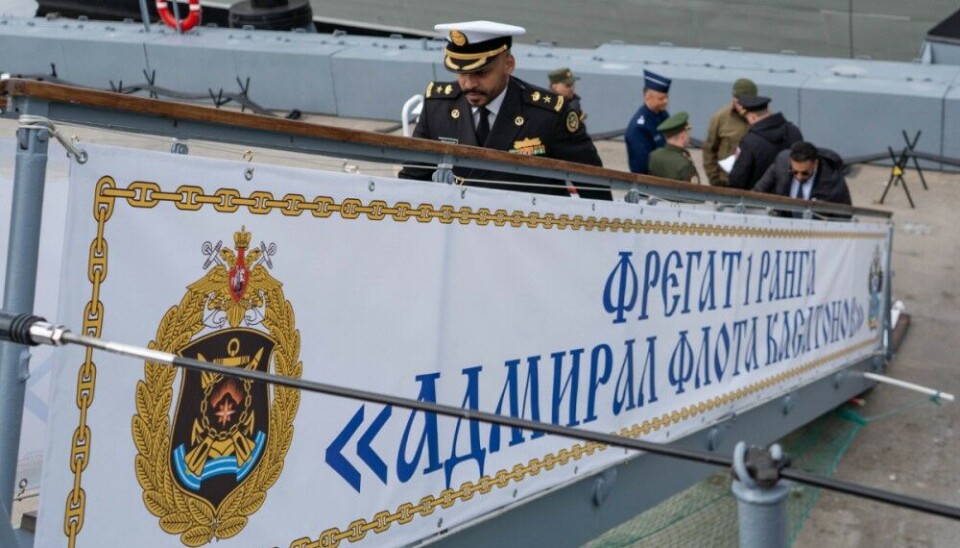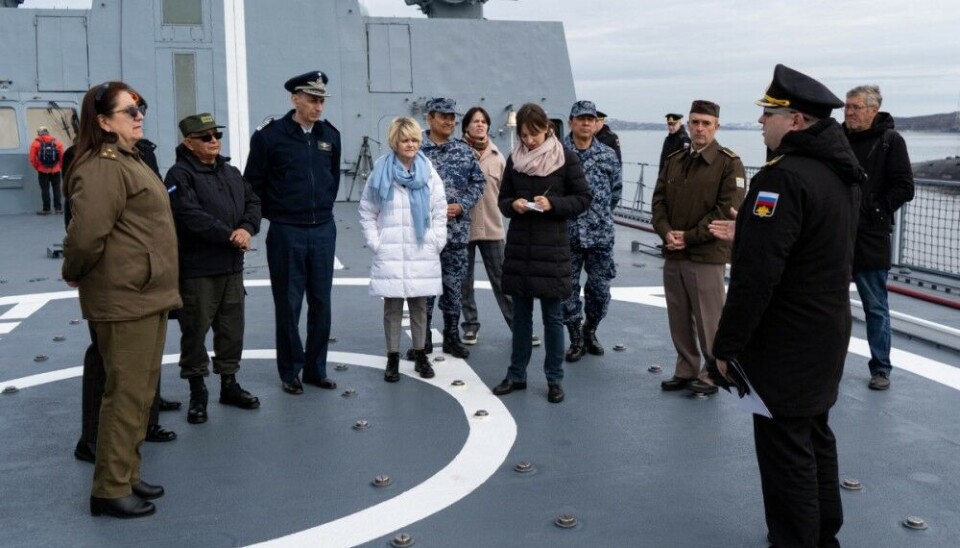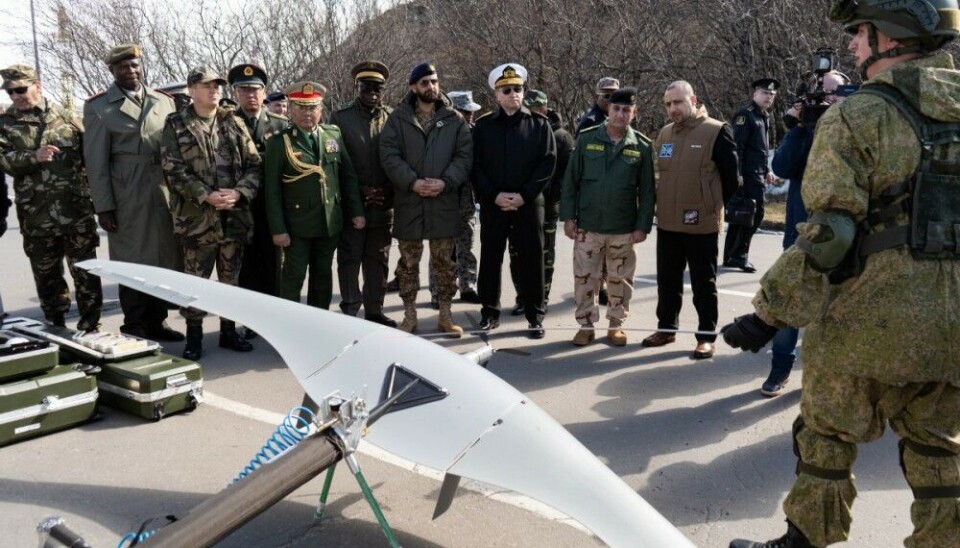Military attachés from 'friendly' countries embarked nuclear submarines
The number of military attaches attending the Russian Defense Ministry’s excursion to the Northern Fleet headquarters in Severomorsk continue to decrease. This year, the delegation included 60 diplomats from 42 countries.
The information service of the Northern Fleet highlights that the military attachés visiting Severomorsk on Thursday all were from so-called “friendly countries” - a term Russia introduced after its full-scale invasion of Ukraine. The list does not include NATO countries, among them Norway which borders Russia in the Barents Sea region.
Norway halted all military cooperation with Russia after the 2014 illegal annexation of Crimea and the start of the war in east Ukraine.
The full list of the 42 countries represented in Severomorsk is not made pubic, but here are military attachés from North Korea, Iraq and Belarus, as well as several countries in South American, Africa and South East Asia.
In comparison, over 100 military attaches from 65 countries attended the visit to Severomorsk in 2017.
Iraq’s defence attaché to Moscow, Major General Abbas Said Radha al-Musawi, headed the foreign diplomatic group of visitors. He thanked the command of the Northern Fleet for the warm welcome and noted that such meetings contribute to the development of constructive international relations with the armies of foreign countries, the navy informs.
Newly appointed Northern Fleet Commander, Vice Admiral Konstantin Kabantsov, underlined in his speech to the delegation the navy’s important role in developing international military cooperation with friendly nation.
Over the last two years, Northern Fleet warships have sailed the world’s oceans, including a port call to South Africa and a joint naval exercise in the South Atlantic.
Just ahead of the foreign military attaché delegation to Severomorsk, the frigate Admiral Gorshkov again sailed out to the Atlantic for a long-lasting voyage together with support vessels.
Two of the Northern Fleet’s nuclear-powered submarines were brought in to Severomorsk so the diplomates could embark; the Orel and the Krasnoyarsk.
The Orel is a 32-years old Oscar-II class submarine, a sister-vessel to the ill-fated Kursk that sank in the Barents Sea in August 2000, killing all 118 crew members onboard. The Krasnoyarsk is the newest Yasen-M class submarine, commissioned in December last year.

